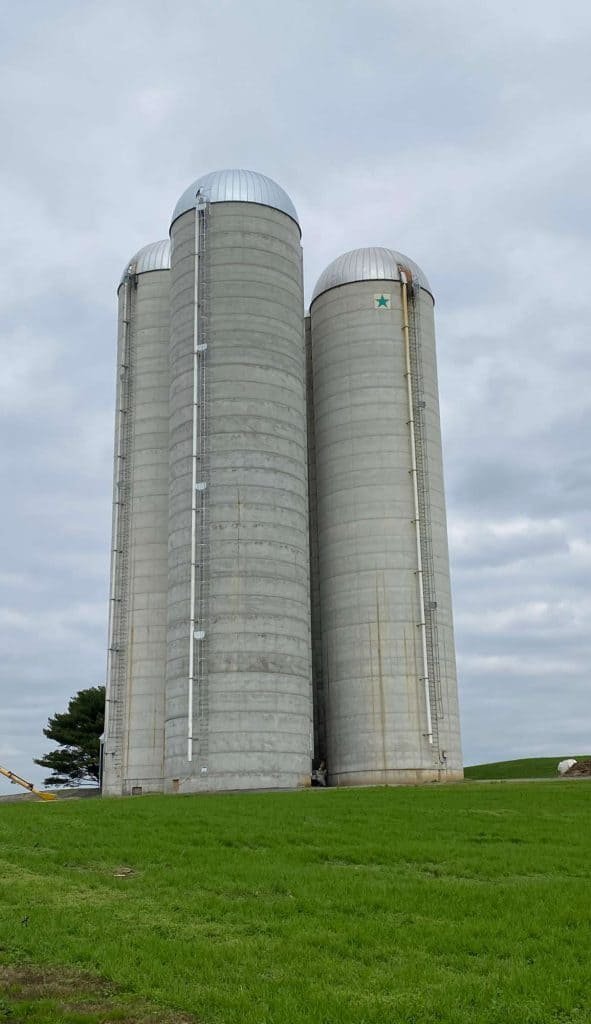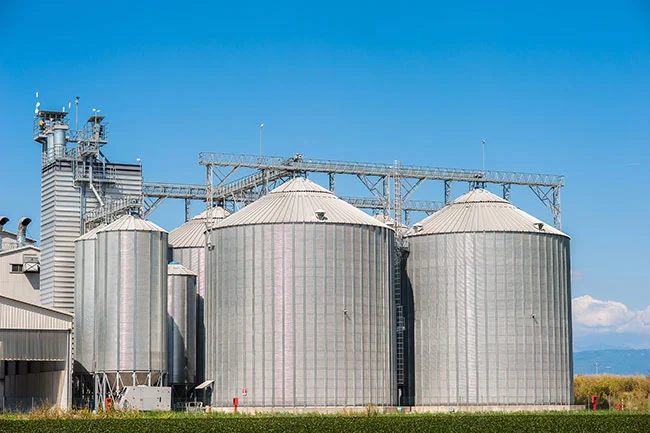What is a Farm Silo and Why is it Important?
A farm silo is a structure used in agriculture to store and protect grain, feed, and other agricultural products. It plays a crucial role in the farming industry by providing a safe and efficient way to store and manage crops.
These silos are typically equipped with ventilation systems, temperature control mechanisms, and other features to ensure the quality and longevity of the stored crops.
In this article, we will explore the definition of a farm silo, its history, different types, importance, benefits, maintenance, and safety considerations.
History of Farm Silos
The use of farm silos dates back to ancient times when farmers realized the need for proper storage of their harvest. In the past, farmers used underground pits or simple structures made of wood or stone to store their crops. However, these methods were not efficient and often led to spoilage and loss of valuable produce.
The concept of modern farm silos emerged in the late 19th century with the invention of the first cylindrical silo by Fred Hatch in 1873. This innovation revolutionized the agricultural industry by providing a more efficient and effective way to store and manage crops. Since then, farm silos have evolved significantly in terms of design, materials used, and technological advancements.
Types of Farm Silos
Farm silos come in various types, each designed to meet specific storage requirements and conditions. Here are some common types of farm silos:
1. Tower Silos: These are tall, vertical structures made of concrete or steel. They are suitable for large-scale farming operations and can store a significant amount of grain.
2. Bunker Silos: Bunker silos are low-profile structures built into the ground or with walls made of concrete or other materials. They are ideal for storing silage, a fermented feed made from crops such as corn or grass.
3. Bag Silos: Bag silos are flexible containers made of heavy-duty plastic. They are a cost-effective option for temporary storage and can be easily transported and set up.
Importance of the Farm Silo
Farm silos play a vital role in the agricultural industry for several reasons:
1. Efficient Storage: Silos provide a large storage capacity, allowing farmers to store their crops in bulk. This helps in managing the harvest effectively and ensures a steady supply of grains throughout the year.
2. Preservation of Quality: Silos are designed to protect crops from moisture, pests, and other external factors that can lead to spoilage. The controlled environment inside the silo helps in preserving the quality and nutritional value of the stored grains.
3. Cost Savings: By storing crops in silos, farmers can take advantage of favorable market conditions and sell their produce when prices are higher. This helps in maximizing profits and reducing the risk of financial losses.
Benefits of Using Farm Silos
Using farm silos offers several benefits to farmers:
1. Increased Efficiency: Silos enable farmers to streamline their operations by providing a centralized storage location. This reduces the time and effort required for handling and transporting crops.
2. Better Inventory Management: Silos allow farmers to keep track of their inventory more effectively. They can easily monitor the quantity and quality of stored crops, enabling them to make informed decisions regarding sales and distribution.
3. Flexibility: Farm silos offer flexibility in terms of storage capacity and can be customized to meet specific requirements. Farmers can choose the size and type of silo that best suits their needs, whether it’s a small on-farm silo or a large commercial silo.
Maintenance and Safety Considerations for Farm Silo
Proper maintenance and safety measures are essential for the efficient and safe operation of farm silos. Here are some considerations:
1. Regular Inspections: Silos should be inspected regularly for any signs of damage, such as cracks, leaks, or structural weaknesses. Prompt repairs and maintenance should be carried out to prevent any potential hazards.
2. Ventilation and Temperature Control: Adequate ventilation and temperature control systems should be in place to prevent the growth of mold, fungi, and pests. This helps in maintaining the quality of stored crops and reduces the risk of spoilage.
3. Safety Equipment: Silos should be equipped with safety features such as ladders, guardrails, and safety harnesses to ensure the safety of workers during maintenance and cleaning operations.
Conclusion
Farm silos are an integral part of the agricultural industry, providing efficient storage solutions for crops. They have evolved over time, offering various types and benefits to farmers. By using farm silos, farmers can enhance their productivity, preserve the quality of their harvest, and optimize their operations.
However, it is crucial to prioritize maintenance and safety to ensure the longevity and safe use of these structures. So, whether you are a small-scale farmer or a large commercial operation, investing in a farm silo can greatly benefit your agricultural business.
Originally posted 2023-03-23 22:59:05.




